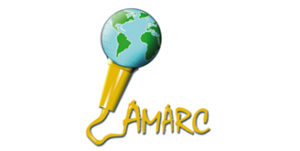Montreal, May 1th, 2013.
May 3rd was proclaimed World Press Freedom Day by the UN General Assembly in 1993 following a Recommendation adopted at the UNESCO’s General Conference in 1991. It serves as an occasion to inform citizens of violations of press freedom. In dozens of countries around the world, radios are censored, fined, or simply didn’t have licence to broadcast legally, while journalists and radio directors are harassed, attacked, detained and even murdered.
Today World Press Freedom Day, we salute thousands of Community radios that exercise their right to communicate. Radios that work in diverse conditions, bringing together ideas and perceptions that are transformed in innovative communication processes. Community radios being managed by women, indigenous communities, youth groups, in urban and rural areas.
For AMARC, freedom of expression and communication are fundamental rights, recognized in international treaties and that should be guaranteed as such by all democratic states . These rights including fare and equitable access to the media, should be protected and extended in the context of rapidly evolving transformations introduced by new information and communication technologies.
In recent years there have been intense discussions in many countries and regions on adopting new regulations on Community broadcasting, on the light of increasing technological convergence and digitalization as well as a worrisome trend for media concentration.
In some countries there have been advances in legislation for community radio, nonetheless, in many others, regulatory frameworks are clear violations of Freedom of expression.
Together with other freedom of expression advocates and defenders we have denounced discretional and discriminatory practices for frequency allocation, with no limits to concentration of property, on barriers to indigenous communities, social and women organizations for equal access to the media. There are also technical or economical limitations that hinder their capacity to communicate, a situation that leads in many occasion, to silence of the diversity of voices Heard.
In this regard, the World Association of Community Radio Broadcasters, AMARC, the human rights perspective is essential to the formulation and guidance on discussion on legislative reforms and regulatory frameworks debates because it offers an alternative perspective to mere technical or economic considerations.
The Community radio movement has a long experience in defending the right to communicate. At the global level the broadcasting regulatory frameworks have been centered in the administration of licences as market goods, facilitating concentration of property in a few. We then insist that a just frequency allocation for radio broadcasting is a key principle to analyse the degree of freedom of expression and respect for human rights in a country.
As reaffirmed by several reports of the United Nations Freedom of Expression Rapporteur, community broadcasting should be expressly recognized as a distinct type of media that should benefit of adequate procedures in the allocation of licences and access to economic resources.
AMARC
Radio CORAX ist Mitglied bei AMARC Europe
